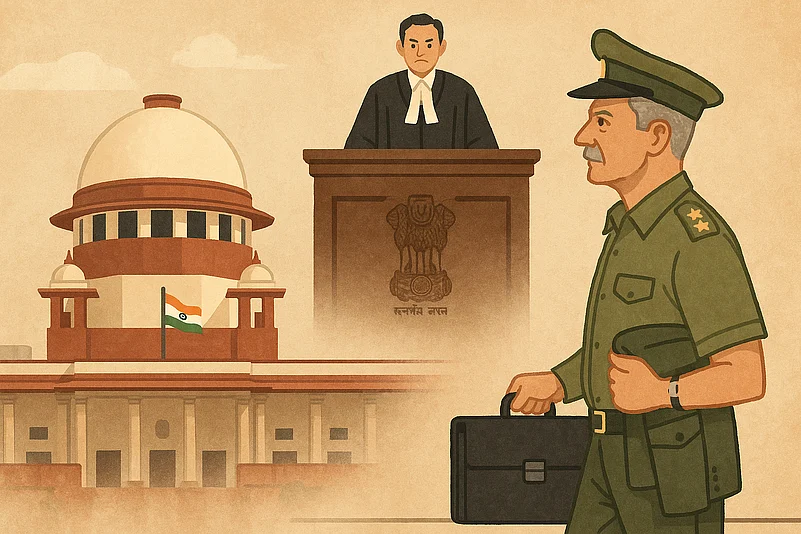
Summary of this article
Supreme Court dismisses service claim filed 11 years post-retirement
Repeated petitions don’t extend legal timelines, rules apex court
Delay and laches principle bars late claims in service disputes
Judgment warns employees: service law remedies are strictly time-bound
The Supreme Court (SC) has dismissed the plea of a retired preventive officer of the Kerala Excise Department who had sought promotions and arrears more than 11 years after superannuation.
The Court observed that repeated petitions to the government do not extend legal timelines, nor do they revive an old cause of action.
The Dispute And Its Long Trail
The officer, Krishnan, retired on January 31, 2008. During his career, he had complained that juniors in the department were given promotions and arrears of pay that bypassed him. Even while in service, he raised the issue through several representations, and after retirement, he continued to write to the department, insisting on parity with his juniors.
When no decision came his way, Krishnan eventually approached the Kerala Administrative Tribunal in 2019—more than a decade after leaving service. The tribunal ruled in his favour in January 2024. The Kerala High Court later upheld that ruling in February 2025, holding that his grievance warranted an address.
The state government, however, challenged both orders before the SC, arguing that such a belated claim could not be entertained in law.
Apex Court’s Reasoning
On August 19, 2025, the SC reversed the lower orders. According to the Supreme Court Bench, the core issue was whether repeated representations could explain the long delay in moving the tribunal. The Court’s answer was categorical: they could not.
“The claim made by the respondent was highly belated,” the judgment said, noting that Krishnan had waited 11 years after retirement to approach the tribunal. Referring to earlier rulings, including State of U.P. v. Rajmati Singh and State of Orissa v. Laxmi Narayan Das, the Court reiterated that persistent letters do not keep a claim alive.
In legal terms, delay and laches weigh heavily against a petitioner. The Court remarked that “procrastination is the greatest thief of time” and that litigants cannot “sleep over their rights” and then seek indulgence after inaction spanning years. The principle, it said, is that inordinate delay erodes equity and creates unfairness on its own.
The Bench therefore set aside both the tribunal and the High Court’s rulings, dismissing Krishnan’s original plea. No costs were imposed in the matter, according to a recent report by the Economic Times.
The judgment underlines an important message for government employees and pensioners: remedies in service law are time-bound. Courts are unlikely to intervene where claims are raised long after retirement, even if they involve pay, promotions, or arrears granted to colleagues.













